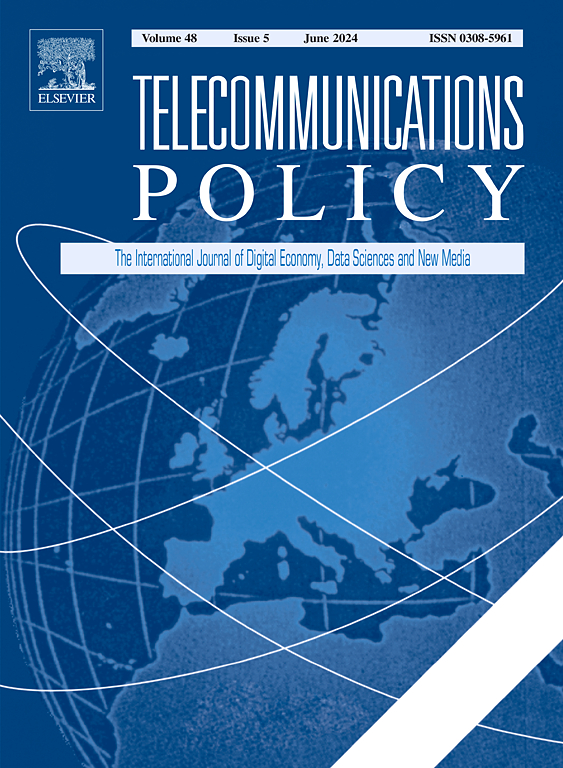电信网络的弹性:韩国案例研究
IF 5.9
2区 管理学
Q1 COMMUNICATION
引用次数: 0
摘要
随着电信网络成为社会基础设施不可缺少的组成部分,其复原力在世界范围内受到极大关注。然而,迄今为止,关于弹性与电信网络之间相互作用的学术研究很少。此外,缺乏使用现实世界的经验和从中收集的教训来解决这一主题的实际研究。为了解决这一差距,本研究通过文献计量分析和主题模型分析来考察电信网络弹性领域的研究趋势。此外,本研究强调了这些网络弹性面临的主要威胁,以及韩国在应对此类威胁方面的地位。通过进行主题建模分析,出现了三个主要的主题集群——数字化转型、弹性管理和网络弹性,每个主题集群都与韩国电信中断的真实案例密切相关。为了用实际见解补充这些结果,该研究进一步探讨了韩国的四个案例研究,涵盖网络攻击、基础设施故障和气候导致的中断。韩国是世界上数字连接程度最高的国家之一,鉴于其对电信服务的高度依赖以及对网络和环境风险的脆弱性,韩国提供了相关的案例背景。根据研究结果,本研究强调了在所有利益相关者中提高“韧性素养”的重要性。本文章由计算机程序翻译,如有差异,请以英文原文为准。
Resilience in telecommunications networks: A Korean case study
As telecommunications networks become an indispensable element of social infrastructure, their resilience is gaining significant attention worldwide. However, to date, there is little academic research on the interaction between resilience and telecommunications networks. Furthermore, there is a lack of practical studies addressing this topic using real-world experiences and lessons gleaned from them. To address this gap, this study examines research trends in the field of resilience in telecommunications networks by conducting bibliometric analysis and topic model analysis. In addition, this study underlines the major threats to resilience in these networks and South Korea's status in terms of dealing with such threats. Three dominant thematic clusters—digital transformation, resilience management, and network resilience—have emerged from conducting a topic modeling analysis, each aligning closely with real-world cases of telecommunications disruptions in South Korea. To complement these results with practical insights, the study further explores four case studies on South Korea, covering cyberattacks, infrastructure failures, and climate-induced outages. South Korea, one of the world's most digitally connected countries, offers a relevant case context given its high dependence on telecommunications services and vulnerability to both cyber and environmental risks. Based on the findings, this study highlights the importance of enhancing “resilience literacy” among all stakeholders.
求助全文
通过发布文献求助,成功后即可免费获取论文全文。
去求助
来源期刊

Telecommunications Policy
工程技术-电信学
CiteScore
10.80
自引率
12.50%
发文量
122
审稿时长
38 days
期刊介绍:
Telecommunications Policy is concerned with the impact of digitalization in the economy and society. The journal is multidisciplinary, encompassing conceptual, theoretical and empirical studies, quantitative as well as qualitative. The scope includes policy, regulation, and governance; big data, artificial intelligence and data science; new and traditional sectors encompassing new media and the platform economy; management, entrepreneurship, innovation and use. Contributions may explore these topics at national, regional and international levels, including issues confronting both developed and developing countries. The papers accepted by the journal meet high standards of analytical rigor and policy relevance.
 求助内容:
求助内容: 应助结果提醒方式:
应助结果提醒方式:


